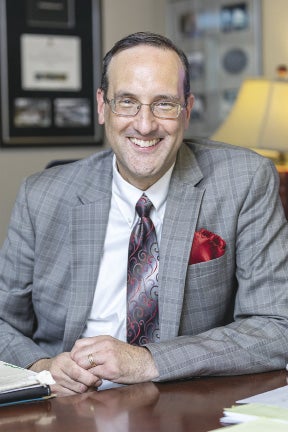Most people think fraud will never happen to their business. Yet, the Association of Certified Fraud Examiners reports the average frequency of small business fraud is 28%.
Get Instant Access to This Article
Subscribe to Worcester Business Journal and get immediate access to all of our subscriber-only content and much more.
- Critical Central Massachusetts business news updated daily.
- Immediate access to all subscriber-only content on our website.
- Bi-weekly print or digital editions of our award-winning publication.
- Special bonus issues like the WBJ Book of Lists.
- Exclusive ticket prize draws for our in-person events.
Click here to purchase a paywall bypass link for this article.
Most people think fraud will never happen to their business. They work hard, and they trust the people they work with, whether it is their partners or their employees.
Yet, the Association of Certified Fraud Examiners reports the average frequency of small business fraud is 28%. Almost 1 in 3 of you will be hit with fraud. Most will never know it happened.

Watch out for these signs:
• The company records are a mess, or do not make sense. The records may be very late in being prepared. Perhaps the person who handles these needs to “go back and correct them.”
• Your expenses and revenue do not match industry ranges, or they do not make sense when compared to last year.
• Certain employees refuse to ever take a vacation.
• A lack of segregation of duties, meaning someone does too much sensitive work without checks and balances.
• Something (like cash flow) does not make sense, and no one can explain why.
According to the saying, 10% of people would never steal, 10% of people will always steal, and 80% can be swayed. So, you have to watch out for 90% of people.
I am sure you think that is ridiculous, but consider this scenario: The person you love most is suffering, and a treatment not covered by insurance costs $500,000. The money is sitting in your employer’s account. Do you take it?
All fraud requires at least three things:
• Need – Most people do not steal unless they need something. Need, though, is subjective and may include a need for gambling, drugs, or other reasons.
• Justification – People who steal do not believe they are stealing. They justify it with reasons like “I just borrowed it and was going to pay it back,” or “I deserved it as compensation as I work more hours than anyone.”
• Opportunity – You cannot steal if there are no circumstances to do so. This is where I recommend you focus your prevention and detection efforts, as it is the only factor you can control.
Fraud is extremely costly. The perpetrator starts with a test of your systems – i.e. “Can I steal a little?” – then it grows. Every case that has come to McLaren & Associates, the victim thought the theft was small, and it ended up being more. For example, someone thought their partner stole $50,000 over 10 years. Once we performed our work, we found theft of more than $4.5 million!
Tips to prevent theft:
• Do not use a signature stamp. Anyone can use it, making forensics difficult.
• Do not let anyone open bank statements but you. If people know you are checking, that alone prevents fraud.
• Review canceled checks noting the payee and amount. This detects check washing and faulty vendors, but also helps you to know your business better.
• Account for all check numbers and lock up your checks.
• Separate job duties, so no one has full control of your cash.
• Require employees to take vacations and have someone else do their job for a week.
• Know the industry standards, and investigate variances in your numbers.
• Verify and check payroll.
While not inclusive, these steps can help to protect you from one of the most costly and stressful events of your life.

